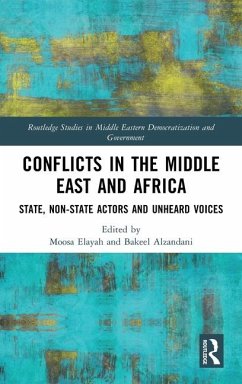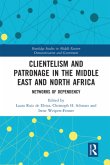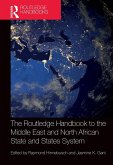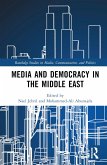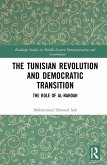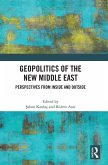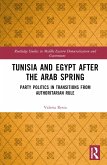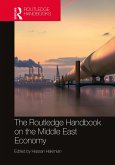This book explores the multifaceted dynamics between state and non-state actors in public policy during and after conflict in the Middle East and Africa. It offers case studies and policy-relevant ideas for conflict-affected areas to move forward in a more sustainable manner.
Following the Arab Spring revolutions, civil wars have plagued the Middle East and North Africa region, along with other countries in Africa. The task of rebuilding peace and institutionalizing stability in conflict-affected countries or fragile states emerging from conflict is a daunting, uncertain, and context-specific task. Yet, focusing on understanding conflicts in the Middle East and Africa offers an important view of the role of non-state actors during conflicts. These regions feature the highest numbers of inter- and intra-state conflicts, and the governments are more often contested than in the rest of the world. The volume proposes different cases addressing the fundamental challenge of inclusion and cohesion of nonstate actors during conflicts. By providing a comprehensive exploration of diverse perspectives, it empowers readers to engage with the pressing issues facing these regions.
This is a useful resource for students and researchers in public policy and governance studies, development studies and NGOs, and Middle East and African Studies.
Following the Arab Spring revolutions, civil wars have plagued the Middle East and North Africa region, along with other countries in Africa. The task of rebuilding peace and institutionalizing stability in conflict-affected countries or fragile states emerging from conflict is a daunting, uncertain, and context-specific task. Yet, focusing on understanding conflicts in the Middle East and Africa offers an important view of the role of non-state actors during conflicts. These regions feature the highest numbers of inter- and intra-state conflicts, and the governments are more often contested than in the rest of the world. The volume proposes different cases addressing the fundamental challenge of inclusion and cohesion of nonstate actors during conflicts. By providing a comprehensive exploration of diverse perspectives, it empowers readers to engage with the pressing issues facing these regions.
This is a useful resource for students and researchers in public policy and governance studies, development studies and NGOs, and Middle East and African Studies.
"In conflict-affected regions, the formulation and implementation of public policy play a pivotal role in shaping post-conflict outcomes. This collection offers a compelling exploration of the complexities involved, focusing on the involvement of state and non-state actors and their impact on policy processes. Through its well-researched case studies and interdisciplinary approach, the book offers a fresh perspective on public policy in the Middle East and Africa. It is an essential read for students, policymakers and researchers interested in understanding the nuances of policymaking in conflict settings."
Moisés Garduño García, Universidad Nacional Autónoma de México
"This book is an invaluable resource for policymakers, researchers, and practitioners seeking to understand the intricate dynamics of public policy during and after conflicts in the Middle East and Africa. By examining the role of state and non-state actors, it provides a comprehensive and insightful analysis of the challenges and opportunities in post-conflict policymaking. The case studies and theoretical frameworks presented in this book offer practical insights and recommendations for sustainable development and peacebuilding efforts. I highly recommend it."
Laurent A. Lambert, Doha Institute for Graduate Studies, Qatar
"This book fills a significant gap in the literature by providing a comprehensive analysis of public policy during and after conflicts in the Middle East and Africa. By examining the roles of state and non-state actors, it sheds light on the challenges and opportunities in policy formulation and implementation in post-conflict settings. The diverse case studies and theoretical insights presented in this book offer valuable lessons and recommendations for policymakers and practitioners engaged in conflict resolution and post-conflict reconstruction. I highly endorse this book for its scholarly rigor and practical relevance."
Khaldoun AbouAssi, American University, USA
Moisés Garduño García, Universidad Nacional Autónoma de México
"This book is an invaluable resource for policymakers, researchers, and practitioners seeking to understand the intricate dynamics of public policy during and after conflicts in the Middle East and Africa. By examining the role of state and non-state actors, it provides a comprehensive and insightful analysis of the challenges and opportunities in post-conflict policymaking. The case studies and theoretical frameworks presented in this book offer practical insights and recommendations for sustainable development and peacebuilding efforts. I highly recommend it."
Laurent A. Lambert, Doha Institute for Graduate Studies, Qatar
"This book fills a significant gap in the literature by providing a comprehensive analysis of public policy during and after conflicts in the Middle East and Africa. By examining the roles of state and non-state actors, it sheds light on the challenges and opportunities in policy formulation and implementation in post-conflict settings. The diverse case studies and theoretical insights presented in this book offer valuable lessons and recommendations for policymakers and practitioners engaged in conflict resolution and post-conflict reconstruction. I highly endorse this book for its scholarly rigor and practical relevance."
Khaldoun AbouAssi, American University, USA

